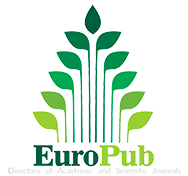Univeristy teachers’s experience of emergency remote teaching due to the COVID-19
Keywords:
Emergency remote teaching, Experience, Learning, Methodologies, Higher educationAbstract
The COVID-19 pandemic has created the largest disruption of education systems in human history, affecting more than 1,500 millones students in more than 200 countries. Closures of learning centers have impacted more than 94% of the world’s student population. Physical distancing and restrictive movement policies have significantly disturbed traditional educational practices. In this context, this study analyzes univeristy teachers’s experience of emergency remote teaching due to the COVID-19 crisis, a Chilean private university. From a qualitative approach, a structured online questionnaire is constructed and a thematic analysis is performed. The sample corresponds to teachers from various programs (n = 35). According to the results, the most common environment and method of conducting classes were their own homes and personal computers. Among the complaints are the instability of their students' network, work overload and the videoconferencing system imposed by their university. It is concluded that emergency remote education requires the participation of the entire teaching staff.
References
Bonfield, C. A. M. Salter, A. Longmuir, M. Benson, C. Adachi (2020). Transformation or evolution?: Education 4.0, teaching and learning in the digital age. Higher Education Pedagogies, 5(1), 223-246, https://www.tandfonline.com/doi/full/10.1080/23752696.2020.1816847
Bozkurt, Aras (2020). A global outlook to the interruption of education due to COVID-19 pandemic: Navigating in a time of uncertainty and crisis. Asian Journal of Distance Education, 1-126. https://www.aacademica.org/ignacio.aranciaga/87.pdf
Carlsson, M., Dahl, G., Öckert, B. y Rooth, D. (2015), The Effect of Schooling on Cognitive Skills. Review of Economics and Statistics 97(3), 533–547. https://direct.mit.edu/rest/article/97/3/533/58248/The-Effect-of-Schooling-on-Cognitive-Skills
Coman, C., Tîru, L. G., Meses, L., Menesan-Schmitz, L., Stanciu, C. y Bularca, M. C. (2020). Online Teaching and Learning in Higher Education during the Coronavirus Pandemic: Students’ Perspective. Sustainability. https://rediie.cl/wp-content/uploads/Online-Teaching-and-Learning-in-Higher-Education-during-the-Coronavirus-Pandemic-Students’-Perspective.pdf
Dreesen, T., Akseer, S., Brossard, M., Dewan, P., Giraldo, J.-P., Kamei, A., Ortiz Correa, J. S. (2020). Promising Practices for Equitable Remote Learning. Emerging lessons from COVID-19 education responses in 127 countries. Florence: Innocenti Research Briefs no. 2020- 10, UNICEF Office of Research - Innocenti. https://www.unicef-irc.org/publications/pdf/IRB%202020-10%20CL.pdf
El Said, G. R. (2021). How Did the COVID-19 Pandemic Affect Higher Education Learning Experience? An Empirical Investigation of Learners’ Academic Performance at a University in a Developing Country. Advances in Human-Computer Interaction, Article ID 6649524. https://doi.org/10.1155/2021/6649524
Engzell, P., Frey, A. y Verhagen, M. D. (2021). Learning loss due to school closures during the COVID-19 pandemic. PNAS,118 (17) e2022376118. https://doi.org/10.1073/pnas.2022376118
Farrell, S. (2016). Open-Ended vs. Closed-Ended Questions in User Research. Nielsen Norman Group Nielsen Norman Group. https://www.nngroup.com/articles/open-ended-questions/
Grewenig, E., Lergetporer, Ph., Werner, K., Woessmann, L. y Zierow, L. (2020). COVID-19 and Educational Inequality: How School Closures Affect Low- and High-Achieving Students. IZA DP No. 13820. http://ftp.iza.org/dp13820.pdf
Haapaniemi, J., Venäläinen, S., Malin, A. y Palojoki, P. (2020). Teacher autonomy and collaboration as part of integrative teaching – Reflections on the curriculum approach in Finland. Journal of Curriculum Studies. 1-17. https://www.tandfonline.com/doi/pdf/10.1080/00220272.2020.1759145?needAccess=true
Hjelsvold, R., Bahmani, A. y Lorâs, M. (2020). First impressions from educators as NTNU transitions to an online only mode of learning. https://www.researchgate.net/publication/341042510
Hodges, C., Moore, S., Lockee, T., & Bond, A. (2020). The difference between emergency remote teaching and online learning. Educause Review, 27. https://www.researchgate.net/publication/340535196_The_Difference_Between_Emergency_Remote_Teaching_and_Online_Learning
Huang, J. (2020). Successes and Challenges: Online Teaching and Learning of Chemistry in Higher Education in China in the Time of COVID-19. Journal of Chemical Education, 97(9), 2810–2814. https://doi.org/10.1021/acs.jchemed.0c00671
Kiger, M. E. y Varpio, L. (2020). Thematic analysis of qualitative data: AMEE Guide No. 131. Medical Teacher. https://www.plymouth.ac.uk/uploads/production/document/path/18/18247/Kiger_and_Varpio__2020__Thematic_analysis_of_qualitative_data_AMEE_Guide_No_131.pdf
Lake, R. y Dusseault, B. (2020). Remote classes are in session for more school districts, but attendance plans are still absent. Center for Reinventing Public Education. https://www.crpe.org/thelens/remote-classes-are-session-more-school-districts-attendance-plans-are-still-absent
Lavy, V. (2015). Do differences in schools’ instruction time explain international achievement gaps? Evidence from developed and developing countries. The Economic Journal, 125(588), 397-424. http://wrap.warwick.ac.uk/85516/1/WRAP_v_lavy_differences_in_schools.pdf
Meng, L.; Hua, F. & Bian, Z. (2020). Coronavirus disease 2019 (COVID-19): emerging and future challenges for dental and oral medicine. J. Dent. Res. https://www.unboundmedicine.com/medline/citation/32162995/Coronavirus_Disease_2019_(COVID19):_Emerging_and_Future_Challenges_for_Dental_and_Oral_Medicine
Misirli, O. y Ergulec, F. (2021). Emergency remote teaching during the COVID-19 pandemic: Parents experiences and perspectives. Educ Inf Technol. https://doi.org/10.1007/s10639-021-10520-4
Mohmmed, A. O., Khidhir, B. A., Nazeer, A. y Vijayan, V. J. (2020). Emergency remote teaching during Coronavirus pandemic: the current trend and future directive at Middle East College Oman. Innov Infrastruct Solut, 5(3),72. https://doi.org/10.1007/s41062-020-00326-7
Nowell, L. S., Norris, J. M. White, D. E. y Moules, N. J. (2017). Thematic Analysis: Striving to Meet the Trustworthiness Criteria. International Journal of Qualitative Methods. https://doi.org/10.1177%2F1609406917733847
Orlov, G., McKee, D., Berry, J., Boyle, A., DiCiccio, T. J., Ransom, T., Rees-Jones, A. y Stoye, J. (2020). Learning during the COVID-19 Pandemic: It Is Not Who You Teach, but How You Teach. IZA DP No. 13813. https://www.econstor.eu/bitstream/10419/227340/1/dp13813.pdf
Peng, X.; Xu, X.; Li, Y.; Cheng, L.; Zhou, X. & Ren, B. (2020). Transmission routes of 2019-nCoV and controls in dental practice Int. J. Oral Sci., 12(9). https://doi.org/10.1038/s41368-020-0075-9
Pokhrel, S. Roshan Chhetri, R. (2021). A Literature Review on Impact of COVID-19 Pandemic on Teaching and Learning. Higher Education for the Future 8(1), 133–141. https://journals.sagepub.com/doi/pdf/10.1177/2347631120983481
Qu, X. & Zhou, X. D. (20209. Psychological intervention in oral patients in novel coronavirus pneumonia outbreak period. Zhonghua Kou Qiang Yi Xue Za Zhi, 55(0):E003. https://doi.org/10.3760/cma.j.cn112144-20200213-00053
Radnor, H. A. (2002). Researching your professional practice: Doing interpretive research. Open University Press.
Rapanta, Ch., Botturi, L., Goodyear, P., Guàrdia, L. y Koole, M. (2020). Online University Teaching During and After the Covid-19 Crisis: Refocusing Teacher Presence and Learning Activity. Postdigit Sci Educ 2, 923–945. https://doi.org/10.1007/s42438-020-00155-y
Tomasik, M. J., Helbling, L. A. y Moser, U. (2020). Educational Gains of In-Person vs. Distance Learning in Primary and Secondary Schools: A Natural Experiment During the COVID-19 Pandemic School Closures in Switzerland. International Journal of Psychology. https://onlinelibrary.wiley.com/doi/10.1002/ijop.12728
UNESCO. (2020) Education: from disruption to recovery. https://en.unesco.org/covid19/educationresponse
Vera. F. (2021). Impacto de las plataformas de videoconferencia en la educación superior en tiempos de COVID-19. Revista Electrónica Transformar, 2(1), 47-57. https://revistatransformar.cl/index.php/transformar/article/view/8/1
Wermke, W., Rick, S. O. y Salokangas, M. (2019) Decision-making and control: perceived autonomy of teachers in Germany and Sweden, Journal of Curriculum Studies, 51(3), 306-325. https://doi.org/10.1080/00220272.2018.1482960
Whittle, C., Tiwari, S., Yan, Sh. y Williams, J. (2020). Emergency remote teaching environment: a conceptual framework for responsive online teaching in crises. https://www.emerald.com/insight/content/doi/10.1108/ILS-04-2020-0099/full/pdf?title=emergency-remote-teaching-environment-a-conceptual-framework-for-responsive-online-teaching-in-crises
Wilches, J. (2007). Teacher autonomy: A critical review of the research and concept beyond applied linguistics. Íkala, Revista de lenguaje y cultura, 245–275. https://revistas.udea.edu.co/index.php/ikala/article/view/2720
Xu, H.; Zhong, L.; Deng, J.; Peng, J.; Dan, H.; Zeng, X.; Li, T. y Chen, Q. (2020). High expression of ACE2 receptor of 2019-nCoV on the epithelial cells of oral mucosa. Int. J. Oral Sci., 12(8). https://doi.org/10.1038/s41368-020-0074-x








